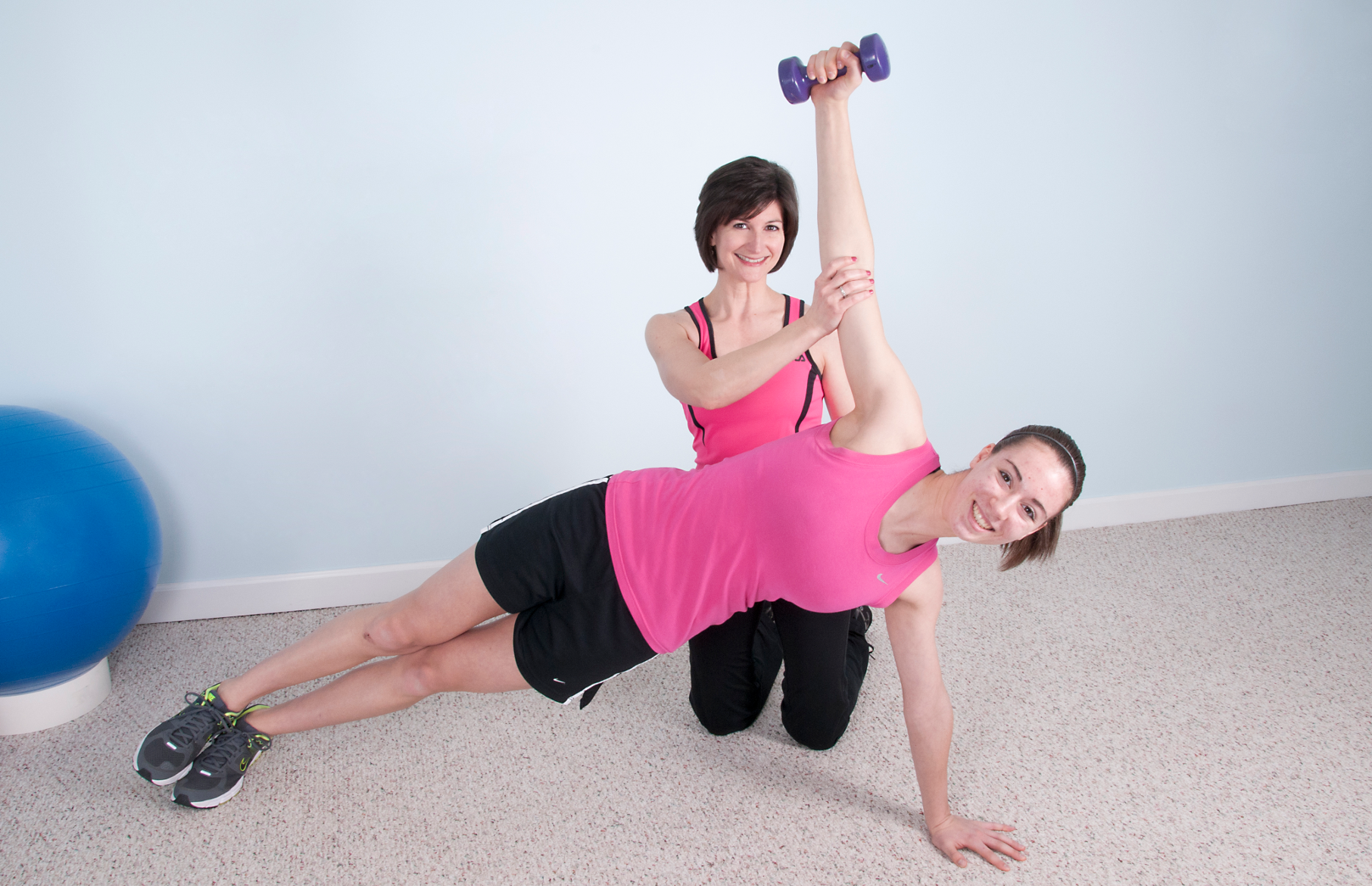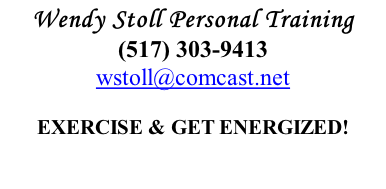


Fitness Tips
“Exercise is the MagicPill!” Regular physical activity improves overall health, reduces stress, anxiety and depression, and enhances quality of life.
Move More to Lose More!
Park further away. Take the stairs. Walk around when you’re on the phone or during t.v. commercials, fidget, take your groceries in one bag at a time, exercise during your favorite t.v. shows.
Schedule your exercise sessions like important appointments and stick to them!
Think of how much better you will feel after you’ve exercised.
Diets don’t work. Eating mindfully does!
Don’t skip meals (especially breakfast). It slows down your metabolism.
Eat breakfast! It’s the most important meal of the day!
Keep your metabolism firing by eating small meals every 3-4 hours.
Do your best to avoid going past 4 hours without food. Stabilize your blood sugar levels and reap the rewards of a faster metabolism!
Frequently Asked Questions
How much cardiovascular exercise should I do?
The National Academy of Sports Medicine (NASM) recommends 150-minutes of moderate-intensity cardiovascular exercise per week (30-minutes 5 days/week) or, 75-minutes/week of vigorous-intensity (like H.I.I.T.) Or, you can combine the two options.
How many calories should I strive to burn during my cardio workout? 250 – 500+ per workout session.
How often should I strength train?
Strength training exercises should be performed 2 – 4 days per week for a minimum of 1 set of 8-15 repetitions. Complete 8-10 exercises that challenge major muscle groups. To determine if you are using the proper weight, you should feel fatigue by the end of your set. Most people work up to being able to complete 2-3 sets of 15 reps. Make sure you work opposing muscle groups. For example, if you work the bicep you then need to work the tricep muscle. To save time, some people prefer to work upper body one day and lower body the next.
How fast can I do my strength training exercises?
Keep movements slow and controlled. Repetitions should take about 4-5 seconds (1-2 for lifting and 3-5 for lowering). You will maximize results by mentally and physically focusing on the muscle group you are working, not just going through the motions.
How do I know when to increase my weight or resistance?
When you can complete a whole set without experiencing fatigue by the last few reps of your set, it is time to increase your weights/resistance. A 5% increase is recommended.
I’ve hit a plateau. What can I do?
If you always do the same exercise routine your body will get used to it and you’ll hit a plateau. By changing your routine often, you essentially trick your body while achieving optimum results. Make your cardio more challenging by adding intervals (harder or faster segments mixed in every few minutes). Practice H.I.I.T. training (high intensity interval training) or Tabata training. Do circuit training or try a new class. Strive for 2 intense cardio days a week mixed in with your regular cardio routines. Don’t skimp out on strength training either. Keep it interesting by using different types of equipment (weights, machines, medicine balls, tubing, bands).
How do I breathe during strength training?
Exhale on the exertion, contraction or “work” part of the exercise. Inhale on the rest or non-exertion part of the exercise.
When should I stretch?
This is an important component that many people leave out of their exercise routines. Stretching improves flexibility and reduces soreness. Stretches should be held for at least 15-30 seconds (longer if working on improving flexibility). Never bounce while you stretch.
Get Started Today!

